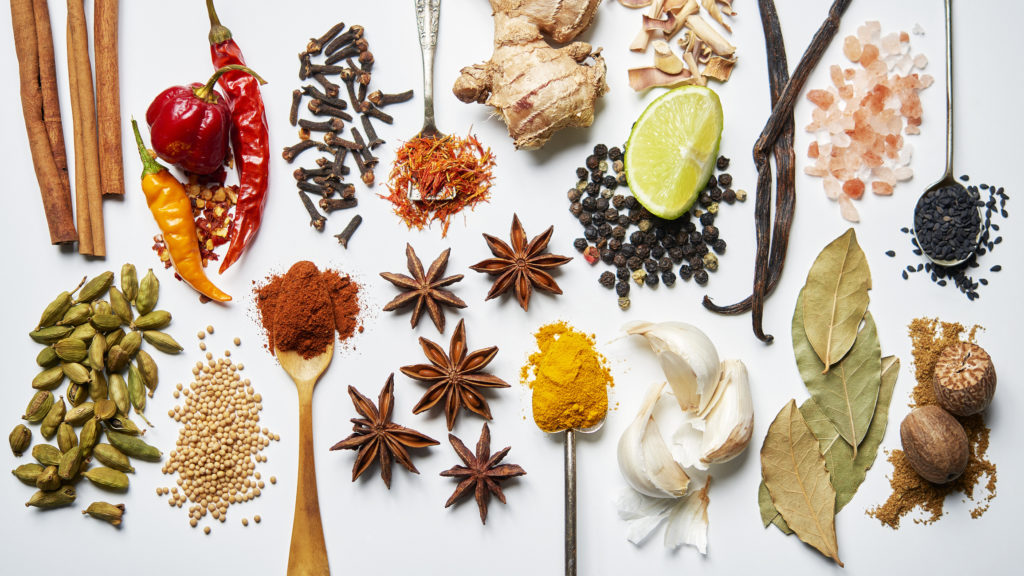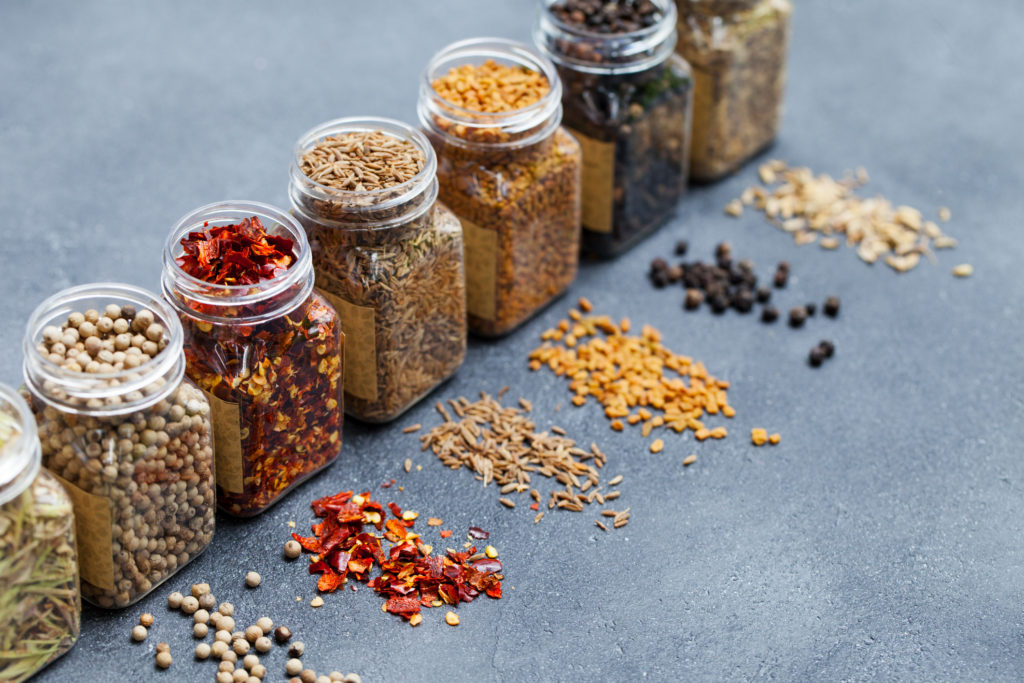
Herbs and spices have long been used to add value. In ancient times, spices were used as much as for their medicinal properties as they were for their flavors. They were also extremely valuable currency. Now, during this pandemic, herbs and spices have become more valuable in a different way...our health.
Although evidence is limited, some specific herbs and spices have helped relieve congestion symptoms. In a 2010 study of herb and essential oil effectiveness against viral infections, an essential oil spray containing peppermint, eucalyptus, oregano, and rosemary was applied to participants five times a day for 3 days.
At the end of the study, the researchers concluded that the essential oil spray was effective at improving upper respiratory symptoms immediately after use.
How To Get Rid of Mucus in Lung Fast
Here are some spices that research has proven to attack the mucus, thin it out and even sometimes help it drain from the body:
Cardamom
Also known as elaichi, cardamom's small green pods are rich sources of minerals and antioxidants that aid in blood detoxification and resolve digestive issues.
The aromatic spice also contains vitamin C and other essential nutrients to help protect against viral infections and the formation of mucus in your body.
RELATED: More Congested With Mucus at Night? Here's How to Fix It
Nutmeg
This is a warm spice and can be added to your sweet and savory food items to boost their flavors. It has strong antibacterial properties that help boost the immune system.
A cup of hot milk with nutmeg powder, a few drops of honey, and crushed cardamom are packed with antiviral properties and has the ability to kill viruses that cause sniffles and sore throats.
Cinnamon
When you think of cinnamon, don't think of it as an added spice to some of your favorite sweets and desserts.
It is used for that, but cinnamon is one of the oldest spices. It was used for embalming back in Egypt nearly 2500 years ago. Most spices are the seed of a plant, but cinnamon is the inner layer of bark from a tree, which is dried and rolled.
RELATED: 5 Life-Saving Herbs & Spices And The Diseases They Fight
Traditionally, cinnamon can be used to gently reduce congestion and phlegm in the lungs, and dry up runny noses. Try simply adding a cinnamon stick to your ginger tea and drinking it down in one swoop to increase its potency.
Cayenne Pepper
Cayenne can put a little kick in your upper respiratory system. In the early 1800s, cayenne was used in massive doses to heat up the body and purge it of disease. While we don't do the same things now, much lower quantities can be used to improve circulation and help clear out mucous and phlegm from the sinuses and nasal passages.

RELATED: Three Natural Herbs To Boost Your Immunity System in the Winter
Peppermint
Peppermint tea is widely available in stores or online and is considered safe. You can also simply add a few fresh peppermint leaves to hot water to make your own tea. Unless you're allergic, it has no side effects and poses no danger.
Peppermint oil applied to the skin can cause a rash in some people. You can try some on one area of your skin to test it. If you're not allergic, a drop of peppermint oil on the back of your tongue can open up your nasal passages as well as freshen your breath.
Salt (and Water)
You may be thinking, salt? Really? Yes, really. Saline sprays, by definition, contain just salt and water. Other nasal sprays may contain decongestants.
It’s important to note that prolonged use of decongestant sprays may cause a rebound effect, or worsen congestion symptoms.
RELATED: 5 Amazing Things Salt Water Can Cure
To use a saline nasal spray, follow these steps:
- Blow your nose to help clear out your nasal passages before using the spray.
- Stand upright — there’s no need to tilt your head back.
- Close one of your nostrils by pressing your finger against it. Then position the opening of the spray bottle under the nostril that’s open.
- Squeeze the spray bottle gently and inhale the spray with your mouth closed.
- Sniff hard a few times to make sure the spray gets all the way up your nasal passages.









